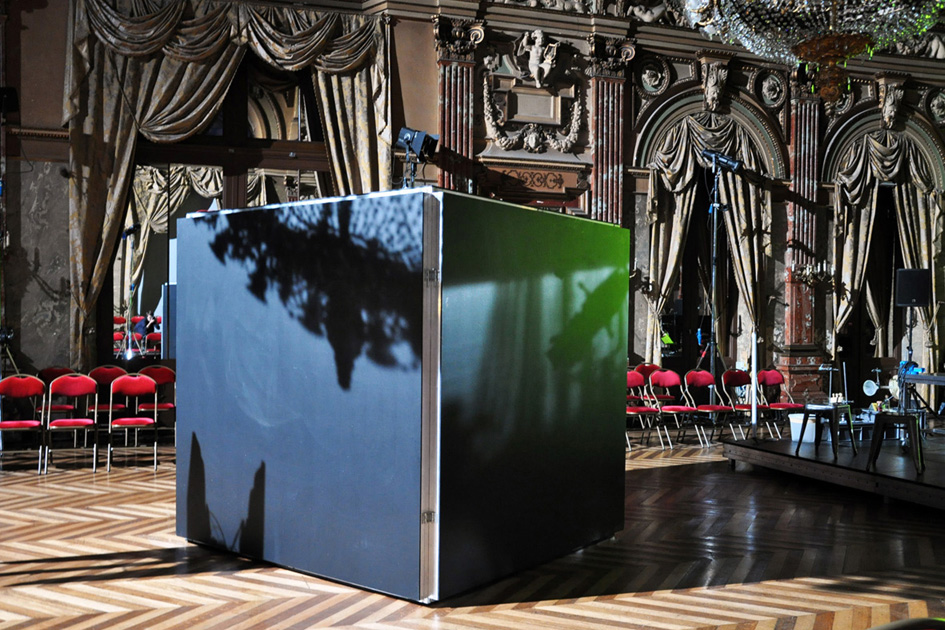2022

In the opera Tristan und Isolde by the German composer Richard Wagner, Isoldes finale “Mild und Leise” (Liebestod) is an iconic death scene. How come that this famous ending has such a legendary status? What explains the mystique around its performance history? And why are many people overcome with extreme emotion when they listen to it?
In search of an in-depth analysis of the way music can affect the mind and body of the listener, we chose Wagner’s famous Liebestod as a case study. We conducted numerous interviews with singers, sound scientists, opera professionals and non professionals. We collected opera-historical artefacts as well as anatomical drawings and conducted several experiments to dissect the music and visualize its sound waves. A large-scale listening experiment was carried out with about 100 Ghent residents, the results of which are also incorporated in the performance.
The singers and performers Elisa Soster, Hauke Heumann and Shlomi Moto Wagner will present this ‘opera-archaeological‘ research in an immersive performance in the Opera Ghent. And: a special role is reserved for one of the great Flemish opera divas of the second half of the 20th century, Jacqueline Van Quaille.
PREMIERE was on 12th January 2022, Opera Ballet Vlaanderen, Gent
Shows in Stuttgart will be: 13th – 15th May 2022, Staatsoper Stuttgart
Concept and research: Johannes Müller / Philine Rinnert
Direction / scenography / video: Philine Rinnert
Sound design: Ruben Nachtergaele
Dramaturgy: Koen Bollen, Piet De Volder
Performance: Elisa Soster, Hauke Heumann, Shlomi Moto Wagner
Special guest performer: Jacqueline van Quaille
Piano: Jef Smits
String Quintet: Katelijne Vinkeroye, Se-Yun Lee, Traudi Helmberger, Hans-Ludwig Becker, José Reyes
Assistance: Arno Synaeve
Production: ehrliche arbeit – freies Kulturbüro
In collaboration with IPEM/University Gent
Coproduction of Johannes Müller/Philine Rinnert with Opera Ballet Vlaanderen and Staatsoper Stuttgart.
Funded by the Doppelpass Fund of the German Federal Cultural Foundation / Gefördert im Fonds Doppelpass der Kulturstiftung des Bundes






